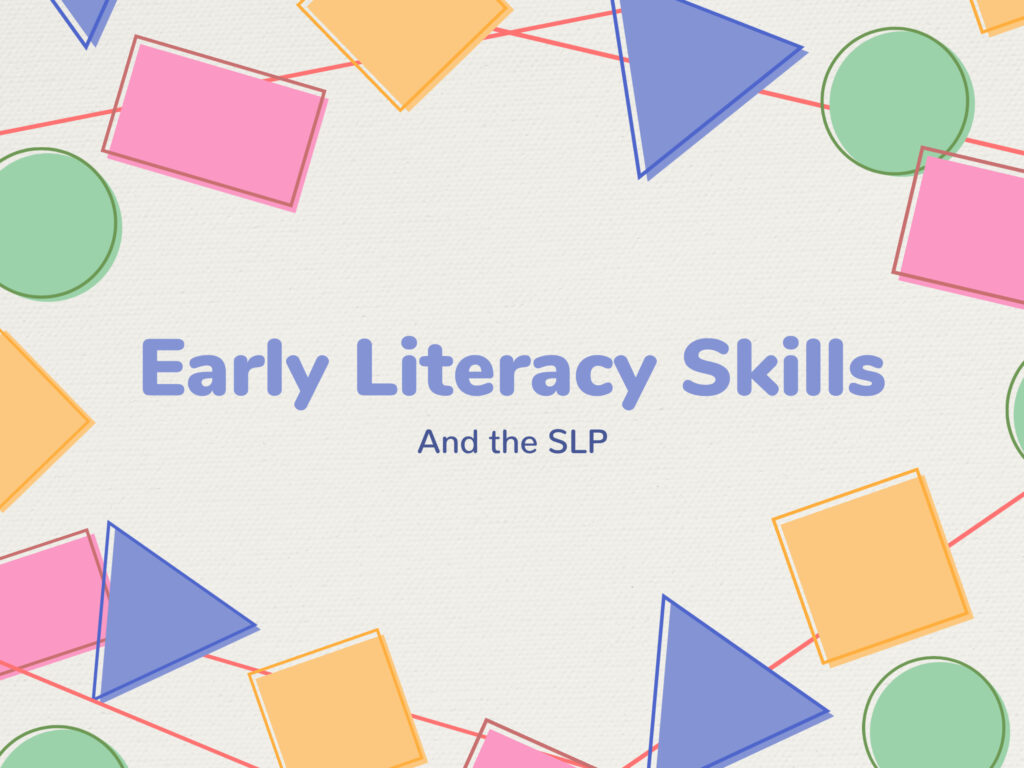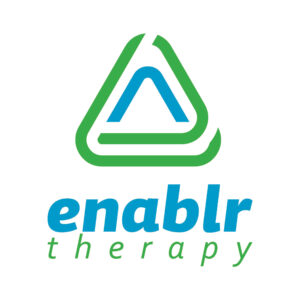
Starting kindergarten begins one of the biggest chapters in any child’s life. It puts all the skills that have been developed during their toddler and preschool years to the test. This time period can also put the spotlight on academic delays when a child begins to fall behind their peers in knowing their letter sounds, learning sight words or writing their name.
Literacy Skill Delays
One of the basic foundational skills to a child’s success with academic learning is their literacy skills also known as their ability to read and write. If you are finding your child is struggling with spelling, learning to sound out words, understanding what is being read aloud to them or their ability to put their thoughts into words they may have an underlying speech or language impairment that is contributing to these issues.
In fact, research has shown that there is a link between literacy skills, language, and articulation [2], which is not surprising when you think about the underpinnings of reading. Children who have difficulties accurately producing speech sounds oftentimes have difficulties associating letters to their sounds. This can lead to difficulties sounding out words when reading and writing. Children with a language delay, or difference, also pose a risk for literacy deficits as they may have difficulties comprehending what was read, writing their thoughts in a logical manner, and/or reading words accurately in a fluent manner. [1] There are many different components of language that can impact a child’s literacy skills. Grammar, vocabulary, and comprehension are just a few to mention.
Enlisting an SLP
If your child is showing difficulty with reading, spelling, or producing sounds, it is best to bring your concerns up with their pediatrician, teacher, or school administrator. A speech language pathologist (SLP) can aid in the prevention of reading and writing difficulties and identification of children who may be at risk for literacy deficits. Early identification and intervention are very important, as reading and writing skills have a big impact on a child’s academic performance.
Assessment
SLPs are also trained in the implementation and interpretation of reading, writing, language, and articulation assessment procedures. [3] When assessing literacy skills, an SLP will look at the child as a whole in both their articulation and receptive/expressive language skills.
They will assess if the child:
- Has mastered their speech sound production
- Is able to follow directions and understand vocabulary
- Is able to express themselves in a clear, grammatically correct manner
Tips For Your Everyday Routine
Remember, early intervention is key to ensure your child meets their greatest potential. So, if you are concerned begin advocating for your child now. As you are navigating how to support your child in their development of literacy skills, here are some Enablr tips to incorporate language-rich activities and phonemic awareness in your everyday routine:
Make a goal of reading 1-2 books a day, everyday:
Reading aids in the development of language, vocabulary, alphabet awareness (letters and their sounds), and so much more. While reading to your child, point to and label objects in pictures. Ask questions about the story and pictures. Encourage your child to be an active participant in the shared experience.
Identify reading and writing opportunities in their environment:
Think about how many words we encounter on a daily basis, have your child help with creating and checking off things on a Grocery lists, point out street signs, words on food containers, or bumper stickers when you see them, etc.
Focus on Rhyming:
Choose books that rhyme and point out words that rhyme in day to day interactions. Think of books like: Brown Bear, Brown Bear by Bill Martin Jr.; Chicka Chicka Boom Boom by Bill Martin, Jr. and John Archembault; Llama Llama Red Pajama by Anna Dewdney
Build letter-sound correspondence:
Point out letters in a child’s environment or while reading books. Tell them what letters you see and the sound/sounds the letter makes. Follow up by asking “What sound does the letter ___ make?” or ask “What letter makes the _____ sound?”
Get tactile:
Make letters out of playdough. You can use cookie cutter stencils or shape the letters with your hands. Use shaving cream or sand and have your child trace letters with their fingers. Be sure to talk about each letter and associate the sound/sounds that the letter makes.
If you have concerns about your child’s sound production, comprehension or literacy skills, go to our contact page to inquire about our services. Enablr Therapy has a team of talented speech language pathologists that can work with your child and family to promote speech and language skills. We are here to help your child reach their full potential.
References
[1] Hayiou-Thomas ME, Carroll JM, Leavett R, Hulme C, Snowling MJ. When does speech sound disorder matter for literacy? The role of disordered speech errors, co-occurring language impairment and family risk of dyslexia. J Child Psychol Psychiatry. 2017 Feb;58(2):197-205. doi: 10.1111/jcpp.12648. Epub 2016 Nov 7. PMID: 28102620; PMCID: PMC5297982.
[2] Sices L, Taylor HG, Freebairn L, Hansen A, Lewis B. Relationship between speech-sound disorders and early literacy skills in preschool-age children: impact of comorbid language impairment. J Dev Behav Pediatr. 2007 Dec;28(6):438-47. doi: 10.1097/DBP.0b013e31811ff8ca. PMID: 18091088; PMCID: PMC2755217.
[3] Spracher, Melissa M. “Learning About Literacy: SLPs Play Key Role in Reading, Writing.” Https://Leader.Pubs.Asha.Org/, 1 Apr. 2000, leader.pubs.asha.org/doi/10.1044/leader.SCM.05082000.1.



